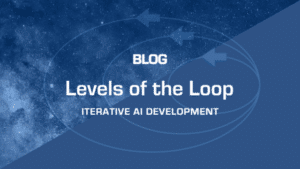Data science is a field with its roots dug deep into empirical evidence, systematic analyses, and logical reasoning. Yet, there’s one element in the data science value chain that often goes unnoticed, an intangible asset that doesn’t necessarily yield its weight in raw data or algorithms. This silent but critical ingredient is ‘Institutional Knowledge’.
Institutional knowledge refers to the cumulative information, skills, and experiences that an organization’s employees possess. It is the contextual knowledge that personnel gain over time, contributing to the understanding of company-specific systems, processes, data, and tools.
In the realm of data science, institutional knowledge is vital for several reasons.
Continuity of Operations
Data science initiatives are highly dependent on a deep understanding of business objectives and detailed familiarity with data sources. Data scientists often work with intricate models and large volumes of data, managing tasks that demand a substantial understanding of a company’s operations and strategic goals. If a data scientist leaves an organization, the departure may cause a significant disruption, leading to delayed projects or poor decision-making due to a lack of essential knowledge.
By capturing and storing institutional knowledge, organizations ensure that critical information remains within the company even when individuals leave. It promotes a smooth transition and operational continuity, reducing the risks associated with the turnover of key personnel.
Propagating Best Practices
Data science is not a solitary pursuit. It thrives on collaboration and shared learning. Institutional knowledge allows data science teams to collectively learn from past experiences, failures, and successes, thereby promoting the refinement and growth of best practices.
An environment that fosters the sharing of institutional knowledge facilitates a culture of continuous improvement. It promotes innovation by allowing teams to build on previous work, rather than starting from scratch or repeating the same mistakes.
The Power of a Knowledge Base
Institutional knowledge isn’t merely an abstract concept. When documented and stored systematically, it transforms into a ‘Knowledge Base’ – a comprehensive repository of invaluable insights that become more valuable with time. By preserving institutional knowledge, we transform it into an invaluable asset that benefits the entire organization.
A knowledge base is a centralized repository for information: a public library of information about a product, service, department, or topic. In data science, a knowledge base might include technical documentation, coding standards, model validation techniques, business rules, lessons learned from previous projects, and other insights that can help data science teams navigate their work more effectively.
Creating a robust knowledge base enables quicker onboarding of new team members, facilitates cross-functional collaboration, and serves as a reference point for addressing recurring challenges. Moreover, it’s an asset that grows in value over time, mirroring the organization’s evolving insights and experiences.
In Conclusion
The ever-evolving field of data science relies heavily on a combination of human ingenuity and machine power. Institutional knowledge, though intangible and often overlooked, plays a crucial role in this synergy.
Recognizing the importance of institutional knowledge and actively working towards its preservation can yield significant benefits for data science operations. It enables continuity, fosters the growth of best practices, and provides a knowledge base that can serve as an invaluable resource for the entire organization.
As we continue to embrace data-driven decision making, let’s also acknowledge and promote the role of institutional knowledge as the silent guardian of our data science endeavors.






